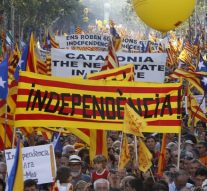
Is Europe Catalonia-ready?
Economy 17 October 2017“The 27th of September 2015 will notably remain in the memory of the citizens of Spanish autonomous province Catalonia who have cast their votes in the parliamentary elections, in which the most participants were pro-independence political parties/coalitions. According to the official data provided by the Catalan Government, staggering 77.4% of total registered voters, used their right and voted. A pro-independence coalition “Together for YES” (Junts pel Si – JxSi), took a convincing victory with more than 39.5 per cent of total votes, and won 62 seats (out of total 135) within the Catalan Parliament. It was followed by pro-Spanish oriented Citizens` (Ciudadanos – C`s) party, which opposes to Catalan independence. With its 25 seats in the newest composition of Catalan parliament, it will try to oppose the predominant opinion of the majority. The possible independence status of this entity potentially opens economic Pandora’s box with many key issues to which there are no clear answers.”
Flash back towards the 2015 published article. It’s been exactly two years since the key elections have been held within the (still) Spanish province. In 2015, many Pandora questions have arisen. Although the vote in 2015 referendum was billed as a plebiscite on independence, it still meant nothing unless the real referendum had been set and held in autumn 2017. Catalan officials knew the approximate vote dispersal within their voting bodies, but they did not know what will happen if Catalonia obtains full sovereignty over its territory. How would its independence be perceived by the international community? Would financial and political institutions and organizations grant Catalonia a membership immediately? What would be the first priorities of the government in keeping the economy stable? How will that affect their industry, trade, exportation, services, life standard? Opening the economic Pandora’s box could have brought even more concerns than solutions.
With threatening to invoke the article 155 of the Spanish constitution, Spanish central government is ready to deploy “all necessary means to protect its national sovereignty”. It is of great uncertainty to predict what will be the final outcome of the Catalan crisis as well as its relations with the EU.
While the Commission have clearly claimed earlier and some media reported on, the Catalan government is the one which should apply officially for the full EU membership. The Commission will not be ready to “recognize” its independence, and Juncker announced that it would not be appropriate if the Catalonia gains de facto a status of independence. As of September 2010, Catalan region measures significant economic growth, in accordance with the World Bank data. At the same time, the rest of Spanish soil measures no single improvement record in economic affairs. Economy of Catalonia is export oriented so it would be hard to predict if the rest of the EU member states will simply stay by side of Spain and block the Catalan goods and services. As of 14 October`s announcement, it is official that the Commission for sure does not want the Catalan independence in practice.
Several reasons for this challenge are possible. First, Commission clearly does not want to interfere within the internal Spanish political issues. Principle of subsidiarity plays the best role in this case, since the national problems could be resolved within that level.
The second possible reason is the fact that the Commission and the EU itself are not sure what means will and could be deployed to resolve the crisis. It appears that none of the Brussels civil servants, practicioners and, most importantly, policy decision-makers do not know how to cope with the sui generis situation. This is why all of them are insanely repeat that no direct parallel could be drawn between similar cases such as Kosovo one.
It seems that Catalan officials still do not take any direct measures and steps towards the complete independence. Instead, there is now something like status quo or interregnum between the local and central Government in Madrid. And no one knows what will happen. No one can answer whether the EU is Catalonia-ready.



